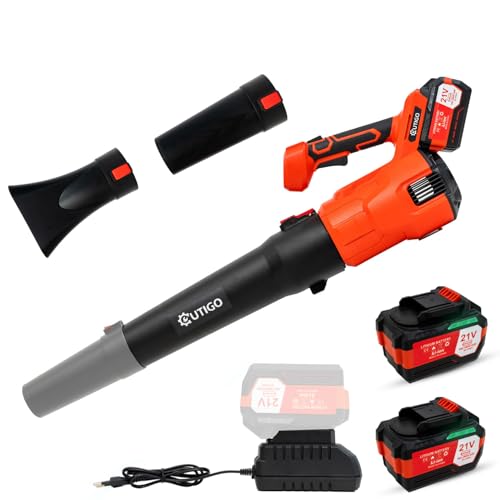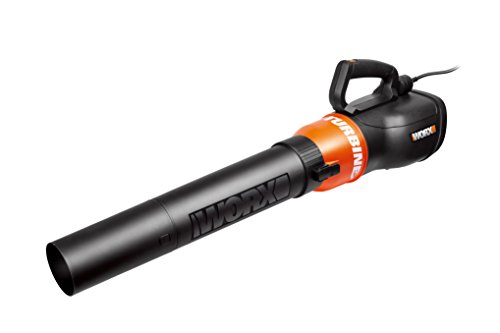Understanding Leaf Blowers: What They Are and How They Work
Defining Leaf Blowers
Leaf blowers are powerful tools designed to remove leaves and debris from your outdoor spaces such as gardens, driveways, and patios. They operate by blowing air at high speeds, effectively pushing leaves and other lightweight debris into manageable piles for easy collection. Whether fitted with a tube for focused air direction or using a nozzle attachment, these devices make the daunting task of clearing leaves straightforward.
How Leaf Blowers Function
The operation of a leaf blower is relatively simple. Most models feature a motor that drives a fan, which generates high-velocity airflow. This airflow is then directed through a nozzle or tube, enabling users to guide the air exactly where it’s needed. In essence, operating a leaf blower is like wielding a powerful wind tunnel in your hands, making yard clean-up quick and efficient.
Choosing the Right Leaf Blower for Your Needs: Essential Features to Consider
Assess Your Yard Size and Leaf Volume
The first step in selecting the perfect leaf blower is evaluating the size of the area you need to clear. For small yards with minimal leaves, a lightweight, battery-operated model may be sufficient. However, for larger properties with substantial leaf coverage, a more powerful gas model might be necessary. Knowing the volume of leaves you typically handle can greatly influence your choice.
Consider Weight and Portability
When using a leaf blower, especially for extended periods, weight and portability play critical roles. A lighter model is easier to manoeuvre, reducing fatigue. If you’ll be carrying it around frequently, an electric blower might be a better fit, as they are generally lighter than their gas counterparts.
Evaluate Noise Levels
Different leaf blowers produce varying noise levels, which can be an important consideration, especially in residential areas. Electric leaf blowers are often quieter, making them suitable for use in neighbourhoods during early hours. If noise is a concern, look for models specifically designed to operate quietly.
Look for Additional Features
Certain leaf blowers come with helpful features that can enhance your experience. Variable speed settings allow for greater control, while models with vacuum capabilities can mulch leaves into smaller pieces for easy disposal. Consider whether these added functionalities align with your cleaning routine.
Electric vs. Gas Leaf Blowers: Which One is Right for You?
Electric Leaf Blowers: Benefits and Limitations
Electric leaf blowers are typically lighter, quieter, and easier to start compared to gas models. They require minimal maintenance and do not emit harmful exhaust fumes, making them eco-friendly options for small to medium-sized yards. However, they have a limited range and may require access to an electrical outlet or the use of extension cords.
Gas Leaf Blowers: Advantages and Considerations
Gas leaf blowers generally offer more power and durability, making them well-suited for larger areas with heavy debris. They are more mobile, as they do not rely on electrical outlets, and can operate for a longer duration. However, they are heavier, can be noisier, and typically require more maintenance, including fuel management and engine care.
Our Top Picks for Leaf Blowers: Recommendations Based on Different Scenarios
Best for Small Gardens
For those with small gardens, we recommend a lightweight electric leaf blower. These models are easy to handle, quiet, and perfect for light duty tasks. They will help you maintain your garden without the hassle of fuel or heavy equipment.
Ideal for Medium-Sized Properties
For medium-sized properties, a mid-range electric blower with variable speed settings would be ideal. This combination allows for both delicate and more robust tasks, catering to a variety of leaf and debris conditions.
Top Choice for Large Yards
If you manage a large yard with significant leaf coverage, a gas leaf blower is our top recommendation. Look for a model with a powerful engine that can handle tough jobs efficiently. Consider its weight, and make sure it has features that make it easier to use during extensive clean-ups.
Tips for Maintaining Your Leaf Blower for Longevity and Performance
Cleaning the Air Filter
Regularly check and clean the air filter to ensure optimal airflow and performance. A clean filter prevents dust and debris from clogging the engine, which can affect its efficiency. Make it a habit to check the filter, particularly before peak leaf-clearing season.
Storing Your Leaf Blower Properly
Proper storage is key to prolonging your leaf blower’s lifespan. After each use, clean it thoroughly and store it in a dry place to avoid rust and deterioration. If you have a gas model, make sure to drain any remaining fuel if you plan to store it for an extended period.
Routine Checks and Servicing
Just like any tool, a leaf blower benefits from regular maintenance. Check the spark plug, fuel lines, and battery (for electric models) periodically. Following the manufacturers’ guidelines for servicing will keep your blower running smoothly for years to come.




























